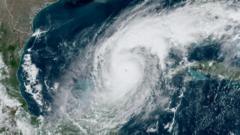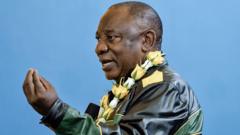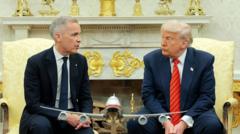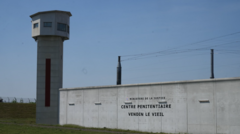Wellington Koo, Taiwan's defense minister, expresses confidence in U.S. power as a deterrent to potential Chinese aggression but emphasizes the urgent need for Taiwan to enhance its own military forces to prepare for asymmetric warfare.
Taiwan’s Defense Minister Emphasizes Strengthening Asymmetrical Warfare Amid U.S. Relations

Taiwan’s Defense Minister Emphasizes Strengthening Asymmetrical Warfare Amid U.S. Relations
In light of shifting dynamics under the Trump administration, Taiwan's defense chief stresses the importance of bolstering the island's military capabilities while depending on U.S. deterrence against China.
Wellington Koo, Taiwan’s defense minister, shared his perspective on the evolving relationship with the United States and the broader implications for regional security amidst China’s ongoing threats. Koo conveyed his confidence in the U.S. maintaining its influence in Asia, asserting that American military presence can effectively deter China from pursuing an aggressive agenda against Taiwan. He noted, however, that Taiwan has an imperative to bolster its own defenses.
Koo remarked that recent actions and rhetoric from President Trump, such as increasing tariffs on trade, insisting on a significant rise in Taiwan's military budget, and accusations related to semiconductor production, have intensified anxieties in Taiwan about the reliability of U.S. support in the event of a Chinese attack. With China claiming sovereignty over Taiwan and voicing intentions for unification—by force if required—Koo's administration is acutely aware of the potential dangers.
In an in-depth interview, Koo articulated a strategic perspective on deterrence. He stated, "If China can be made to understand that the potential costs would be extremely high, then that will make it extremely hard for it to make a decision” regarding war with Taiwan. He highlighted a shared interest with the United States in maintaining stability in the Indo-Pacific region through deterrence strategies, particularly in the vital Taiwan Strait.
Koo emphasized that despite the Trump administration’s ‘America first’ policy, security issues parallel the 'Indo-Pacific first' doctrine, reinforcing the notion of collective security in the region. Moreover, Taiwan is committed to strengthening its military capacity and conducting ongoing drills focusing on asymmetric warfare techniques to prepare for any potential conflicts. With increased defense spending, Taiwan aims to secure sovereignty and uphold its democratic values against persistent Chinese claims.























